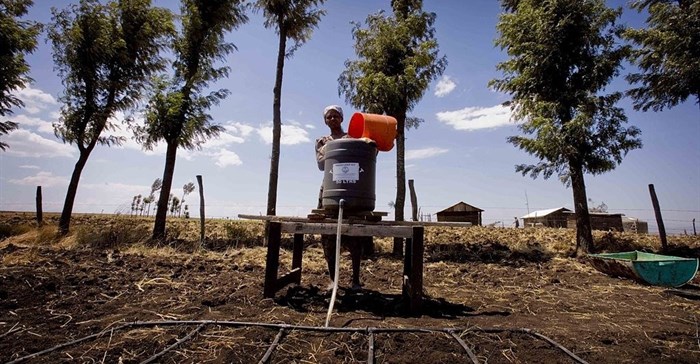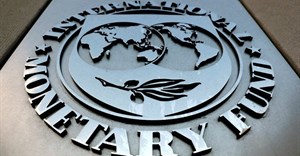
Subscribe & Follow
African hunger policy silent on climate risks

The African Union's Malabo Declaration, adopted in 2014, fails to push for investments in Africa's scientific capacity to combat climate threats, according to a report produced by the UK-based Agriculture for Impact and launched in Rwanda this month (14 June). "Food security and agricultural development policies in Africa will fail if they are not climate-smart", says Gordon Conway, director of Agriculture for Impact.
Ousmane Badiane, director of Africa at the US-headquartered International Food Policy Research Institute, and a Montpellier Panel member, tells SciDev.Net that: "African smallholder farmers are among the most vulnerable groups to the effects of climate change globally, and they are already feeling the effects."
He explains that the Malabo Declaration seeks to make 30 percent of farming, pastoral and fisher households resilient to climate change by 2025. It also plans on scaling-up climate-smart agriculture practices that have been shown to work.
Badiane adds that many innovative agricultural practices and programmes are already taking place across Africa, but these can be small in scale and may remain largely unknown. "There is an urgent need for these to be identified and scaled up, with support from both the private and public sectors," he says. "Governments need to build climate change adaptation and mitigation into their agricultural policies."
The report highlights 15 success stories from countries such as Burkina Faso, Ethiopia, Ghana, Kenya, Mali, Rwanda, Senegal, Tanzania and Zambia. These include technology and innovation, risk mitigation, and sustainable intensification of agriculture and financing.
Badiane tells SciDev.Net: "It is important that African governments have a voice in the international discussions and commitments on climate change. They also need better access to climate funds such as the Green Climate Funds that can help to implement climate-smart programmes."
Shem O. Wandiga, acting director, Institute for Climate Change and Adaptation of Kenya's University of Nairobi, says that the declaration acknowledges the threats posed by climate change but does not recognise the need to integrate resilience into the activities of governments. "No progress towards the goals of the declaration can be achieved without sound scientific knowledge," he says. "Such knowledge cannot be borrowed. This is often ignored by African governments."
This piece was produced by SciDev.Net's Sub-Saharan Africa English desk.
References: Set for success: Climate-proofing the Malabo declaration (Agriculture for Impact, June 2016)
Source: allAfrica

AllAfrica is a voice of, by and about Africa - aggregating, producing and distributing 2000 news and information items daily from over 130 African news organisations and our own reporters to an African and global public. We operate from Cape Town, Dakar, Lagos, Monrovia, Nairobi and Washington DC.
Go to: http://allafrica.com/












